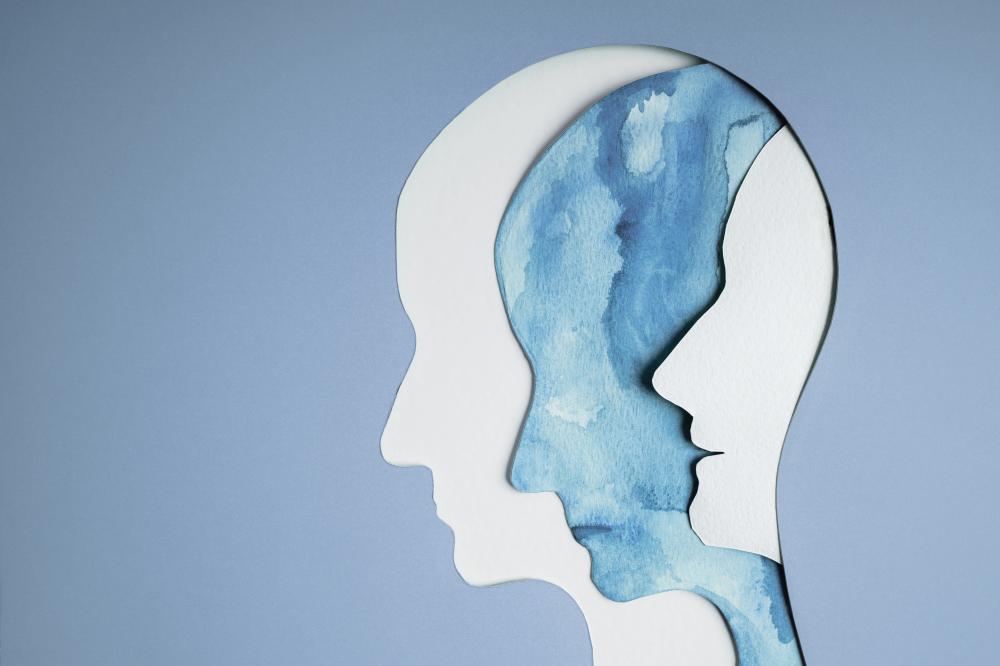
Introduction to Bipolar Disorder Rehab
Bipolar disorder, a mental condition marked by extreme mood swings, requires comprehensive care. Alta Loma emerges as a sanctuary, offering specialized bipolar disorder rehab focused on holistic and personalized approaches. Situated in the serene backdrop of Georgetown, Texas, it extends a warm invitation to those in need, promising a journey towards stability, health, and sobriety.
The Impact of Bipolar Disorder
Bipolar disorder surpasses ordinary mood fluctuations, presenting a complex challenge to affected individuals. Mood phases–ranging from manic highs to depressive lows–disrupt daily life, necessitating a nuanced approach to treatment. Recognizing these patterns is the first step towards effective intervention.
Alta Loma’s Approach to Treatment
At Alta Loma, the belief is that treating bipolar disorder extends beyond addressing symptoms; it’s about healing the person as a whole. Their programs are tailored to meet individual needs, ensuring a path paved with understanding, compassion, and expertise.
Personalized Care Plan
Recognizing the uniqueness of each resident, Alta Loma prioritizes the development of personalized treatment plans. This bespoke approach encompasses cognitive behavioral therapy, medication management, and nutritional planning, among others, to foster recovery and resilience.
Holistic Treatment Model
The holistic model at Alta Loma integrates physical, emotional, and psychological dimensions of health, facilitating a comprehensive therapeutic experience. This model underpins their success in supporting residents to achieve long-term wellness.
Services Offered at Alta Loma
The array of services at Alta Loma is designed to cater to the diverse needs of individuals grappling with bipolar disorder. From in-depth psychotherapy sessions to recreational therapy, each service is a testament to their commitment to fostering healing and growth.
- Cognitive Behavioral Therapy
- Nutrition Planning
- Medication Management
- Recreational Therapy
- Community Integration
Integrated Care Coordination
Understanding the interplay between bipolar disorder and other potential co-occurring conditions, Alta Loma ensures seamless coordination among medical professionals. This integrated approach is vital in addressing all facets contributing to a person’s mental health.
Community Integration and Lifestyle Changes
Reintegration into society and the adoption of healthy lifestyle changes are cornerstones of the recovery process at Alta Loma. The program emphasizes developing skills essential for managing daily stresses and fostering personal growth, setting the stage for a fulfilling and balanced life.
Personal Experiences and Success Stories
Every person’s journey with bipolar disorder is unique, and Alta Loma celebrates these stories of resilience and recovery. The personal testimonials of past residents underscore the transformative impact of their rehab program, inspiring hope and encouraging others to take the first step towards recovery.
Why Choose Alta Loma for Bipolar Disorder Rehab
Choosing the right rehab facility is pivotal. Alta Loma distinguishes itself through its serene environment, specialized programs, and dedicated team–all committed to supporting each individual’s journey to wellness. Here’s why Alta Loma stands out:
- A serene and nurturing environment conducive to healing
- Personalized treatment plans addressing the totality of a person’s needs
- A comprehensive array of services and therapies
- Experienced and compassionate staff
- A strong emphasis on community integration and sustained recovery
Taking the First Step Towards Recovery
Embarking on the path to recovery requires courage and support. Alta Loma is ready to provide the guidance, care, and expertise necessary for individuals to reclaim their lives from bipolar disorder. Contacting Alta Loma marks the beginning of a hopeful, healing journey towards long-term health and sobriety.

What are the common concerns when considering bipolar disorder rehab?
In facing the decision to seek treatment for bipolar disorder, individuals often grapple with fears about stigma, the loss of personal freedom, and the uncertainty of the rehab process. Concern revolves around the effectiveness of treatment modalities, potential side effects of medication, and the possibility of relapse. Many worry about the impact of taking time away from responsibilities, such as work or family. In a conversational tone, it’s important to acknowledge these fears while reassuring that a supportive and understanding environment, like the one we provide, focuses on personalized care plans that aim to reduce these concerns, tailor the treatment to the individual’s needs, and offer a comprehensive support system.
What are common misconceptions about bipolar disorder rehab?
One widespread misconception is that rehab is a one-size-fits-all solution where patients receive uniform treatment. However, the reality is quite the opposite, especially in our center where we focus on creating a personalized treatment experience. Another myth is that staying at a rehab center means being isolated from the outside world. We encourage community integration and healthy lifestyle changes as core components of recovery, providing a balanced approach to rehab. Additionally, some believe that medication is the only treatment offered, but we combine various therapies, including cognitive behavioral therapy and recreational therapy, to address the needs of the whole person.
Can you provide advanced insights into the success of bipolar disorder rehab?
Success in bipolar disorder rehab goes beyond mere stabilization of mood swings. It involves the integration of comprehensive treatment plans that address underlying issues, co-occurring disorders, and the development of coping mechanisms. Our approach includes ongoing evaluation and adjustment of treatment plans to meet the evolving needs of the individual. Advanced insights highlight the importance of a supportive community and a holistic approach that fosters personal growth, resilience, and independence. Through continuous care and support, individuals learn to manage their symptoms effectively, leading to significant improvements in their quality of life.
How does personalized care play a role in bipolar disorder rehab?
Personalized care is the cornerstone of effective bipolar disorder rehab. Each individual’s journey with bipolar disorder is unique, involving different triggers, symptoms, and life experiences. Recognizing this, we prioritize developing a tailored care plan that addresses the specific needs and goals of each resident. Our multidisciplinary team collaborates closely with residents to fine-tune their treatment plans, incorporating various therapeutic modalities and lifestyle interventions. This bespoke approach ensures that each person receives the targeted support they need to navigate their recovery journey successfully, promoting long-term wellness and stability.
How should one go about choosing the right bipolar disorder rehab facility?
Choosing the right bipolar disorder rehab facility is a critical decision that can significantly affect one’s recovery journey. It’s important to look for a center that not only has a robust treatment program but also aligns with the individual’s values and needs. Key factors to consider include the facility’s approach to treatment, the range of services offered, the qualifications and experience of the staff, and the level of personalized care provided. It’s also wise to research the facility’s success stories and testimonials from previous residents. Visiting the facility, if possible, and asking questions about their philosophy, treatment modalities, and aftercare support can provide valuable insights. Ultimately, the right facility should feel like a supportive community that offers a path toward healing and growth.
Why is integrated care coordination important in bipolar disorder rehab?
Integrated care coordination is vital in bipolar disorder rehab because it ensures that all aspects of an individual’s health are addressed in a cohesive manner. Bipolar disorder often co-exists with other conditions, such as anxiety, substance use disorders, or physical health issues, which can complicate treatment. By coordinating care among psychiatrists, therapists, primary care physicians, and other specialists, we can provide a holistic approach that maximizes the effectiveness of treatment. This inclusive strategy supports the individual’s overall well-being, addressing not just the symptoms of bipolar disorder but the full spectrum of their health needs. Effective care coordination fosters clear communication among team members and with the individual, enhancing the efficacy and continuity of care.






